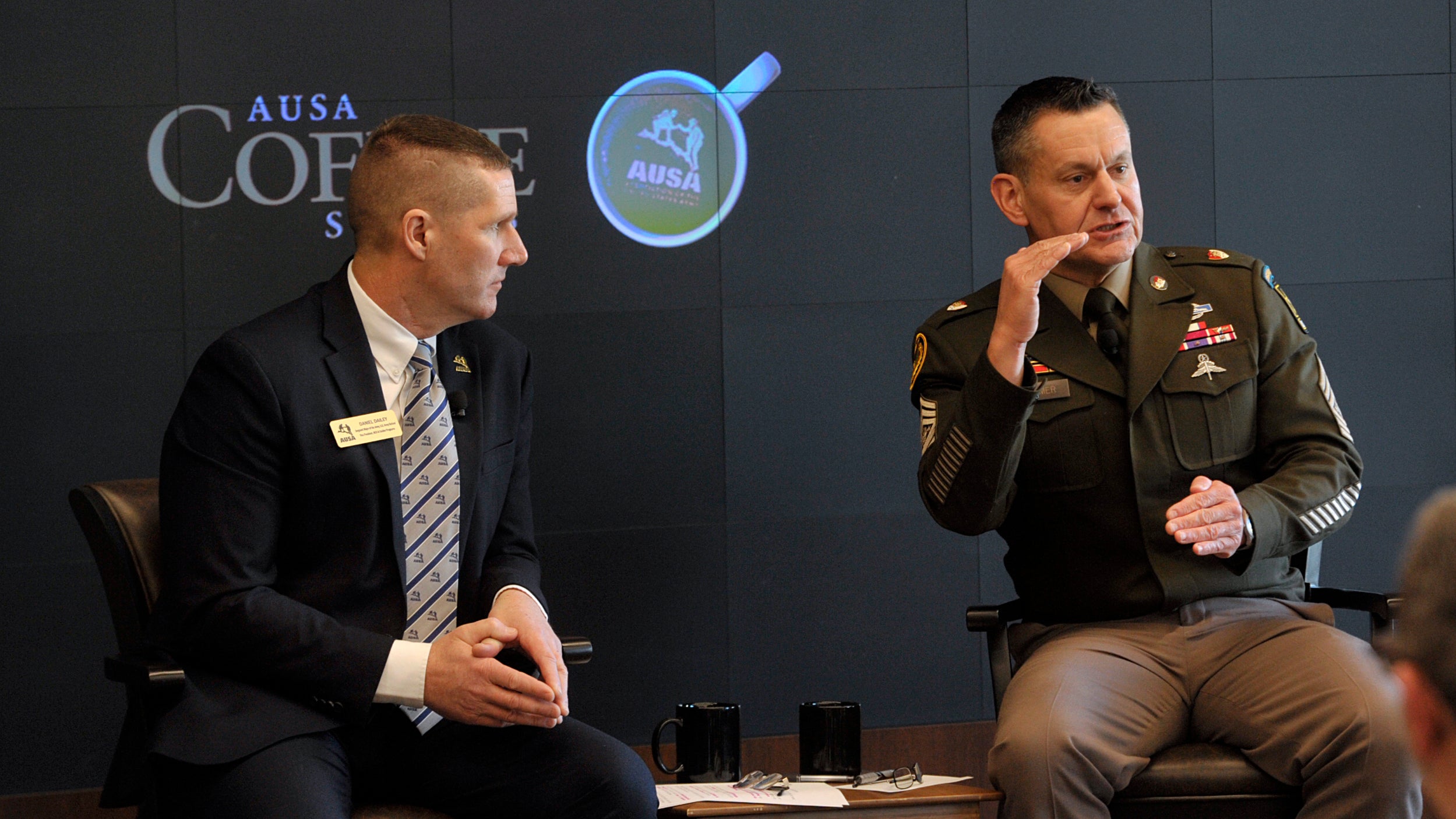SMA: Caring for People Crucial to Readiness
SMA: Caring for People Crucial to Readiness

The Army’s ability to deliver combat-ready formations depends on ensuring that soldiers and their families are taken care of, Sgt. Maj. of the Army Michael Weimer said Feb. 20 at a breakfast hosted by the Association of the U.S. Army.
In a wide-ranging conversation about his top initiatives, Weimer discussed the progress being made on family housing, barracks improvements and dining facilities.
Without safe home environments and cohesive teams where soldiers take care of one another, he said, the Army cannot deliver formations that are ready for combat.
“People have always mattered. You cannot be the warfighter you think you are if you don’t care about your family and your teammates along the way,” Weimer said at the event, part of AUSA’s Coffee Series. “We’re not ready to fight and win tonight, tomorrow or in 2030 if we’re not taking care of our people.”
The Army has “come a long way” in addressing many of the problems with privatized family housing, Weimer said, citing initiatives such as the Tenant Bill of Rights that holds contractors responsible and accountable when issues arise.
But he acknowledged that “we’ve got some work to do” with barracks improvements that have lagged on many installations, due, in part, to delays caused by the COVID-19 pandemic.
After seven months on the job and visits to dozens of Army installations with his wife, Kimberly, Weimer said he’s seen the work that needs to be done and pointed to delays in funding as another barrier to moving more quickly.
Since the Oct. 1 start of fiscal 2024, the military has operated under a continuing resolution that keeps funding at the previous year’s levels and prohibits new program starts.
“We’re struggling to get after this without predictable funding,” Weimer said. “This is where we need congressional help. It’s just a massive infrastructure problem, whether it’s sustainment or new [military construction], and without predictable funding, it makes it extra tough for us.”
Weimer said he also is diving into how soldiers and families manage their money and budget for groceries when there are so many competing challenges. Likewise, he is working to determine what could make installation dining facilities easier and more desirable for soldiers, noting that “our traditional feeding methods within garrison are just not working like they did in the past.”
Food was once managed at the battalion level, and soldiers didn’t have to go far to get a meal, he recalled. With centralized dining facilities, known as Warrior Restaurants, he said, some soldiers can’t or won’t go if it’s too far. He said a “large percentage” of soldiers have no driver’s licenses, so some garrisons are working on providing public transportation.

